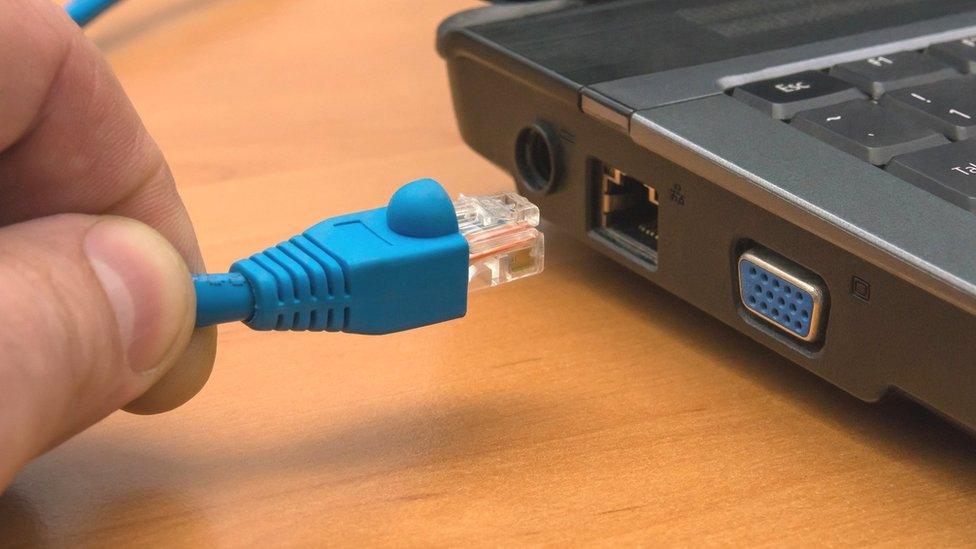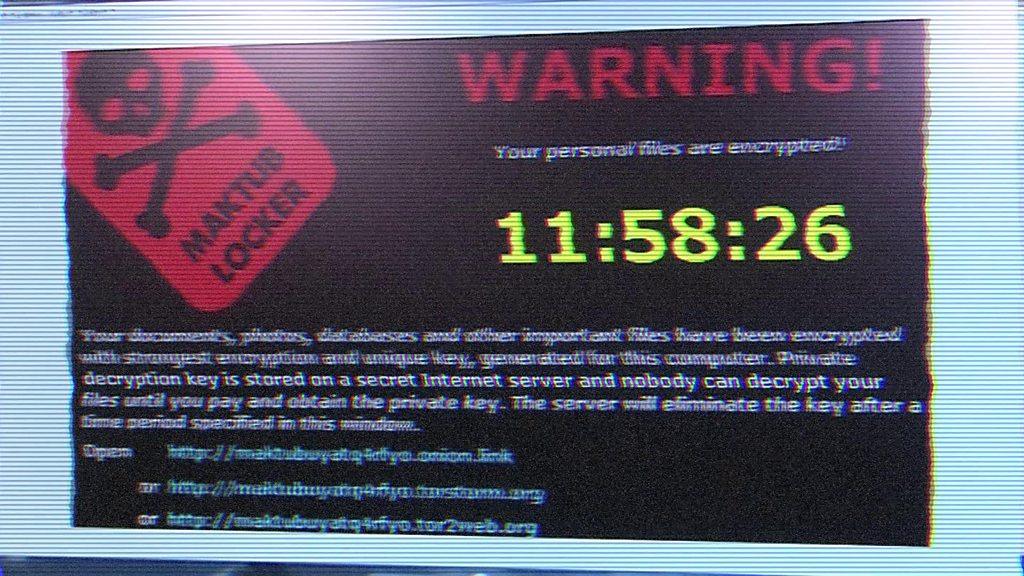Ransomware shuts down Licking County government in Ohio
- Published

The government of Licking County in the US has taken many of its computer and telephone systems offline as it tries to tackle a ransomware infection.
Ransomware is a type of computer malware that scrambles data and demands a fee for it to be restored.
Citizens have been told they must visit government offices to do tasks usually completed online or by phone.
The county commissioner told local media that he was taking advice from cybersecurity experts and the FBI.
Technology explained: what is ransomware?
Licking County, which is in Ohio, has about 170,000 residents.
The local government says it has about 1,000 computers and 12 servers, which have been taken offline making many government websites inaccessible.
Many of the county's public services, including the emergency services, have resorted to working in "manual mode" without their computers, to prevent the malware being spread to more devices.
Residents are still able to call 911 in an emergency but the process may take longer than usual.
"It's slower than we'd like," Sean Grady, director of the Licking County Emergency Management Agency, told the Newark Advocate, external.
"It takes us back 25 years in how we dispatch. We ask more detailed questions."
County commissioner Tim Bubb said the malware was a "crime against the people of Licking County" but added that the government had not been specifically targeted.
"Clearly, it's designed to make money for somebody. It was just our unlucky day," he said.
Some variants of ransomware have previously been defeated, with removal instructions now available online.
However, security experts warn that in some cases the only way to get data back is by restoring from a back-up.
Mr Bubb said he was exploring that option, but did not know how long it would take for computer systems to be back online.
"We're evaluating our back-ups. We think our back-ups are pretty darn good," he said.
- Published27 October 2017

- Published28 November 2016
